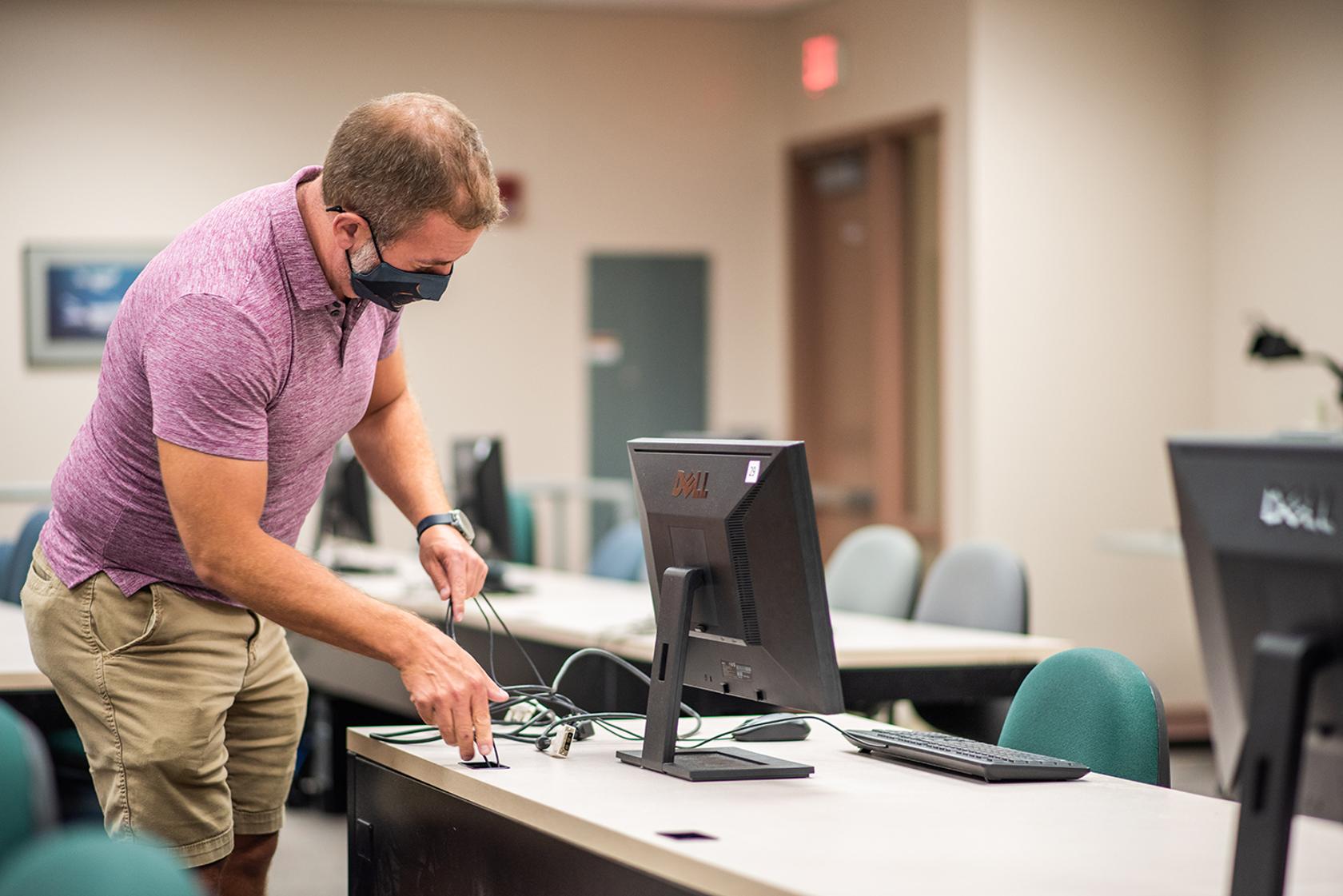Moving forward: College of Technology implements best practices
Thursday, July 23, 2020 9:30 AM
Academics, News, Science and Technology
Pittsburg, KS

Editor’s note:
This is the third in a series of stories that will explore the ways in which Pittsburg State University, the community's largest employer and education provider, has been preparing all summer for the fall semester in an effort to be as safe as possible during the COVID-19 pandemic. Stories are focusing on specific aspects of campus life, including academics in each of the university’s four colleges, recreation, student health, and more.
Q. How is one of the most hands-on colleges at Pittsburg State University working this summer to ensure students and faculty are able to complete coursework amidst the COVID-19 pandemic when school resumes this fall?
A. Each week this summer, College of Technology Dean Robert Frisbee, his five department chairs, and other stakeholders have met virtually to share best practices and brainstorm solutions for classroom safety.
The guiding principle: to continue to be the center for excellence in technology for the state of Kansas while keeping students, faculty, industry partners, and visitors safe.
Move and measure
The College of Technology, housed in the sprawling, state-of-the-art Kansas Technology Center, offers undergraduate and graduate degrees in programs that are part of Automotive Technology, Engineering Technology, Graphics and Imaging Technologies, the School of Construction, and Technology and Workforce Learning.
Many programs are among just a few of their kind in the nation, and their graduates are sought after by top regional, national, and international companies.
“We obviously want our students to be able to have as much face to face time as we can get, so we need to do everything possible we can,” Frisbee said.
Faculty, staff, and administrators have gone into every classroom, moved tables and chairs, and measured to ensure six feet between each student and a minimum of six feet from students to the faculty teaching.
Several classes with a high student count, such as those in the School of Construction, will use S102, a large auditorium, for lectures, in order to space out.
A computer lab used by the School of Construction and Engineering Technology is being reconfigured and rewired by the Physical Plant and IT to ensure distancing.
Divide and conquer
In labs, plans call for plexiglass partitions to be installed between students — for example, while they work on an engine or transmission in an automotive technology class. Plans also call for plexiglass partitions on some faculty podiums, as appropriate. Students and teachers who cannot be spaced 6 feet or more because of close work during labs will wear face shields in addition to masks.
Faculty like Automotive Technology Professor Scott Norman also are prepared to deliver coursework in innovative ways; last spring in the midst of shelter-in-place orders, he created his own YouTube channel and delivered lectures from his home garage.
Online and in person
In the past few weeks, special subgroup meetings in the College of Technology have focused in on the CDC’s recommendation of 30 percent “COVID capacity,” which means reducing a standard class of 35 to 40 students to 10 to 12 by using a Hyflex approach. For example, while a small group attends class in person on a Monday, the remaining students would be watching and listening remotely via a web camera and microphone. On Wednesday, the next small group would attend class in person, and on Friday, the final group.
Some lectures will be given entirely online, meaning hours spent on campus can be dedicated to hands-on work for which students need tools and labs.
The Center for Teaching, Learning, and Technology, under the leadership of senior instructional designer Susan Dellasega, has selected COT faculty who have expertise in technology and tools necessary for innovative instruction to serve as “college coaches.”
“It seems like 70 to 80 percent of our work this summer has been focused on COVID,” Frisbee said. “I want to acknowledge the chairs for their leadership, especially when things have changed so quickly and so many times. And our faculty, and staff in departments across campus, have been great, too.”
“They’ve jumped right in, and they may not even be on contract this summer, but they recognize this is a big deal and it affects so much for the coming year,” he continued. “They want to be ready. They’ve been aggressive to make it happen.”
Caption: Faculty, staff, and administrators have been at work in the Kansas Technology Center — home to the College of Technology — this summer to prepare classrooms for social distancing, reduced capacity, and remote learning.